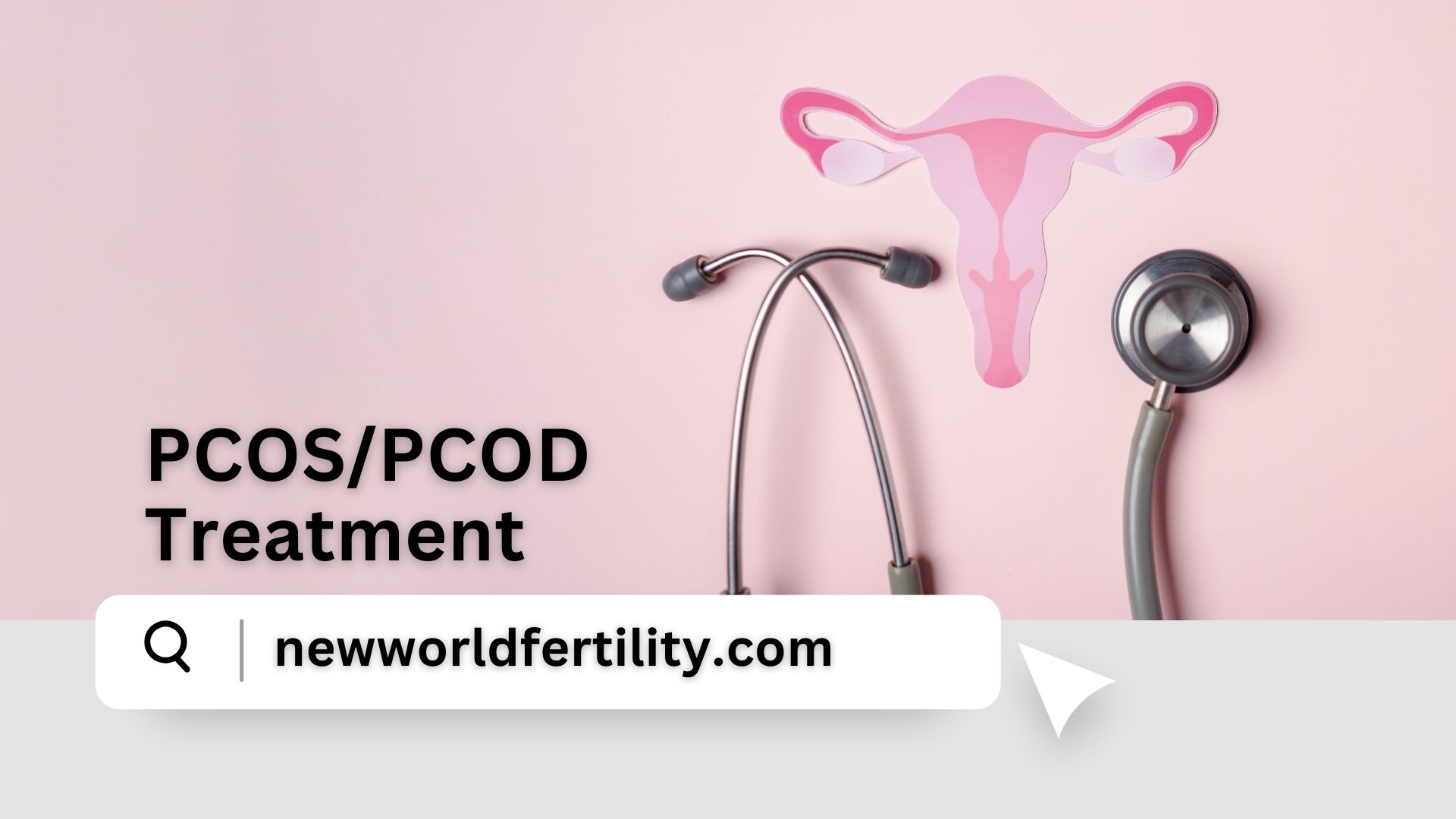Polycystic Ovary Syndrome (PCOS) or Polycystic Ovary Disease (PCOD) is a common hormonal disorder that affects women of reproductive age. Research indicates that about 10-15% of women globally suffer from PCOS/PCOD. Despite its prevalence, many women struggle to find clear information and effective treatment options. At New World Fertility, we are committed to providing holistic, evidence-based solutions for managing PCOS/PCOD.
What is PCOS/PCOD?
PCOS/PCOD occurs when a woman’s ovaries produce higher-than-normal amounts of androgens (male hormones). This hormonal imbalance can lead to:
Irregular or absent menstrual cycles
Difficulty in ovulation, impacting fertility
Development of small cysts on the ovaries
Symptoms like acne, excessive hair growth, and weight gain
While PCOS and PCOD are often used interchangeably, some experts distinguish them based on severity and geographical terminology.
Symptoms of PCOS/PCOD
Recognizing the symptoms early can help in managing the condition effectively. Common symptoms include:
Irregular periods: Fewer than 8 periods a year or prolonged cycles.
Excess androgen: Acne, excessive hair growth (hirsutism), and thinning scalp hair.
Polycystic ovaries: Enlarged ovaries with multiple small cysts visible on ultrasound.
Weight gain or obesity: Difficulty in losing weight despite efforts.
Fertility issues: Challenges in conceiving due to irregular ovulation.
Understanding the Causes
While the exact cause of PCOS/PCOD is unknown, several factors play a role:
Insulin resistance: Over 70% of women with PCOS experience insulin resistance, leading to increased androgen production.
Hormonal imbalance: Excess luteinizing hormone (LH) and low levels of follicle-stimulating hormone (FSH) disrupt ovulation.
Genetics: A family history of PCOS may increase the risk.
Lifestyle factors: Poor diet and lack of exercise exacerbate symptoms.
Treatment Options for PCOS/PCOD
Treating PCOS/PCOD involves a multifaceted approach that includes lifestyle changes, medical treatments, and, in some cases, assisted reproductive technologies. Here’s a comprehensive guide:
1. Lifestyle Modifications
Lifestyle changes are often the first line of defense against PCOS/PCOD. These include:
Healthy diet: Adopt a low-glycemic index (GI) diet rich in whole grains, lean proteins, fruits, and vegetables. Avoid processed foods and sugary drinks.
Regular exercise: Engage in at least 150 minutes of moderate exercise per week to improve insulin sensitivity and aid weight management.
Weight management: Losing just 5-10% of body weight can significantly improve symptoms and restore ovulation.
2. Medical Treatments
Medications can help manage symptoms and improve fertility:
Birth control pills: Regulate menstrual cycles and reduce androgen levels.
Metformin: Improves insulin resistance and lowers blood sugar levels.
Clomiphene or Letrozole: Stimulates ovulation in women trying to conceive.
Spironolactone: Reduces excessive hair growth and acne.
Consult with a specialist at New World Fertility to determine the best medication for your specific needs.
3. Fertility Treatments
For women facing difficulty conceiving, fertility treatments include:
Ovulation induction: Medications like Clomiphene help stimulate egg release.
Intrauterine insemination (IUI): A less invasive fertility treatment.
In vitro fertilization (IVF): Recommended for severe cases of PCOS-related infertility.
4. Alternative Therapies
Many women find relief in complementary therapies:
Acupuncture: May improve ovulation and reduce stress.
Herbal remedies: Supplements like inositol and vitamin D are known to aid insulin resistance.
Mindfulness practices: Yoga and meditation help manage stress, which can exacerbate symptoms.
Long-Term Management
PCOS/PCOD requires ongoing management to prevent complications such as type 2 diabetes, cardiovascular issues, and endometrial cancer. Regular monitoring, including blood sugar and cholesterol levels, is crucial. Work closely with healthcare professionals to adjust treatments as needed.
FAQs About PCOS/PCOD
Q1: Can PCOS/PCOD be cured completely?
PCOS/PCOD cannot be cured entirely but can be effectively managed through lifestyle changes, medication, and regular monitoring.
Q2: How long does it take to see improvements after starting treatment?
Many women notice improvements in symptoms within 3-6 months of lifestyle changes and medical treatment.
Q3: Can I get pregnant with PCOS/PCOD?
Yes, many women with PCOS/PCOD conceive with the help of lifestyle modifications and fertility treatments.
Q4: Are there any natural remedies for PCOS/PCOD?
A balanced diet, regular exercise, and stress management are effective natural remedies. Supplements like inositol may also help.
Q5: How is PCOS/PCOD diagnosed?
Diagnosis involves a combination of medical history, physical examination, blood tests, and ultrasound imaging.
Why Choose New World Fertility?
At New World Fertility, we provide personalized care to address the unique challenges of PCOS/PCOD. Our team of experts uses the latest technologies and holistic approaches to improve your fertility and overall health.
Take control of your PCOS/PCOD today. Contact New World Fertility for expert guidance and compassionate care.

 Aug-26-2025
Aug-26-2025